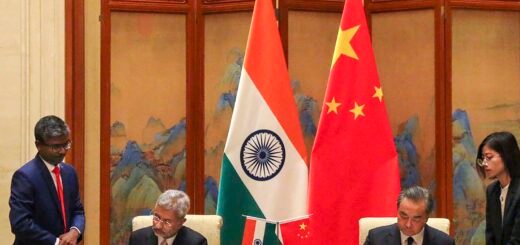Will the BRICS meet the same fate as SAARC?

Once perceived as a promising group of emerging economies that could challenge the western dominance in the International System, the ability to cooperate of the BRICS may fade.
BRICS is scheduled to meet next month under the chairmanship of Russia. The theme for this year is ‘BRICS Partnership for Global Stability, Shared Security and Innovative Growth’. BRICS or formerly just BRIC as coined by Jim O’Neil is a group of emerging economies, namely Brazil, Russia, India, China, and later South Africa. These countries have witnessed tremendous economic growth in the last two decades, especially China. BRICS was deemed to bring about a substantial change in the relative power balance between the West and the emerging world. However, as described in one of the reports of The Hague Centre for Strategic Studies (HCSS), the differences between the BRICS countries have remained large, may it be economic or security. “The absence of a broadly shared positive agenda is the main reason why it is highly unlikely for these countries to grow into a geo-economic, geopolitical alternative to the West within the next five to ten years.” read the report in its conclusion back in 2012. We indeed have seen a lot more engagement after that but the recent events have again raised doubts about the future of cooperation amongst these countries.

Much of the BRICS’ potential was concentrated in the rapid economic growth of these countries post-2000. United by a single thread of being the emerging economies, BRICS came forward to aid each other on several occasions like in the United Nations Framework Convention on Climate Change (UNFCC) to safeguard their interests of continued economic growth. However, they seem to go solo on most other occasions like for example, in the UNSC. In the recent past, there has been another similar organisation of which India is a central member i.e. the SAARC. It is aimed at encouraging cooperation between the South Asian countries, namely India, Pakistan, Sri Lanka, Bangladesh, Nepal, Bhutan, Maldives and Afghanistan. However, SAARC has been accused of mistrust amongst its members for a long time now. It hasn’t met since the last four years after the 2016 summit was suspended indefinitely following the Uri attacks in Kashmir. The tensions between India and Pakistan have hindered or rather almost deadlocked the growth of the organisation.
The recent developments along the Indo-China border are alarming for the BRICS members as tensions escalate between two of its biggest economies. A standoff that has continued since June following skirmishes in the Galwan region has caught everyone’s eye. There have been talks of de-escalation but there have been no signs of easing of tensions. The recent meeting hosted by Russia of the foreign ministers of China and India too has not been sufficiently able to deal with the border deadlock yet. The West and especially the US have identified India as a power that can help contain China’s rise. Hence, we have seen increasing cooperation between the US and India for the past few years. Trump’s open criticism and blaming of China for the catastrophic pandemic has sparked another war of words between China and the US that even was reflected during the UNGA address. The anti-China sentiment is taking roots in India as well. Recently the country witnessed nationwide protests calling for a boycott of Chinese goods. India is currently perceived as an alternative for western firms for manufacturing their products, essentially shifting their operations from China. Apple Inc. for example announced that a part of its iPhone production would be moved from China to India.
The pandemic however has had an enormous impact on India, not just economically but in terms of infections as well. It is today the 2nd most-affected country after the US. So a lot of economic experts and industry professionals have predicted a hard time for the Indian economy in the near future. Among the BRICS, only China seems to be in a better position in terms of the economy, however, the increasing mistrust of the West over China’s assertive policies in its neighbourhood and recently in Hong Kong have earned a strong backlash. BRICS that was once perceived as a promising bloc to challenge the Western dominance over the international system with its rapid economic growth, might face a tough time over cooperation if tensions fail to de-escalate between India and China.

However, it may not be the same as SAARC. China and India both are heavily interdependent and one of the largest trading partners of each other. It’s in none of their interest to engage in a conflict that may have an adverse effect on both of their economies, especially during a time of economic crisis caused by the pandemic. Sinologist Jayadeva Ranade has explained the Chinese aggression as more of a consequence of the domestic problems faced by the government. Facing difficulties in trade with the US, pandemic, the Chinese govt seems to divert its public attention to sovereignty issues along the Indian border. Apart from that, unlike SAARC, the presence of other political heavyweights like Russia makes a difference. Russia might play a vital role in easing tensions between China and India during the upcoming summit as it has a considerable amount of influence on both parties. The New Development Bank of the BRICS might play a crucial role in the post-pandemic economic revival of the member countries.
With Brazil and India battling the highest number of cases, and economic decline in almost every member country it is extremely crucial that the BRICS unites in this tough period for cooperation. BRICS was not just an integration project of the most powerful emerging economies but also a test initiative for global south-south cooperation. If the geopolitical tensions between India and China do not de-escalate it might jeopardize the future of the cooperation of the whole bloc like it happened in the case of SAARC.


















